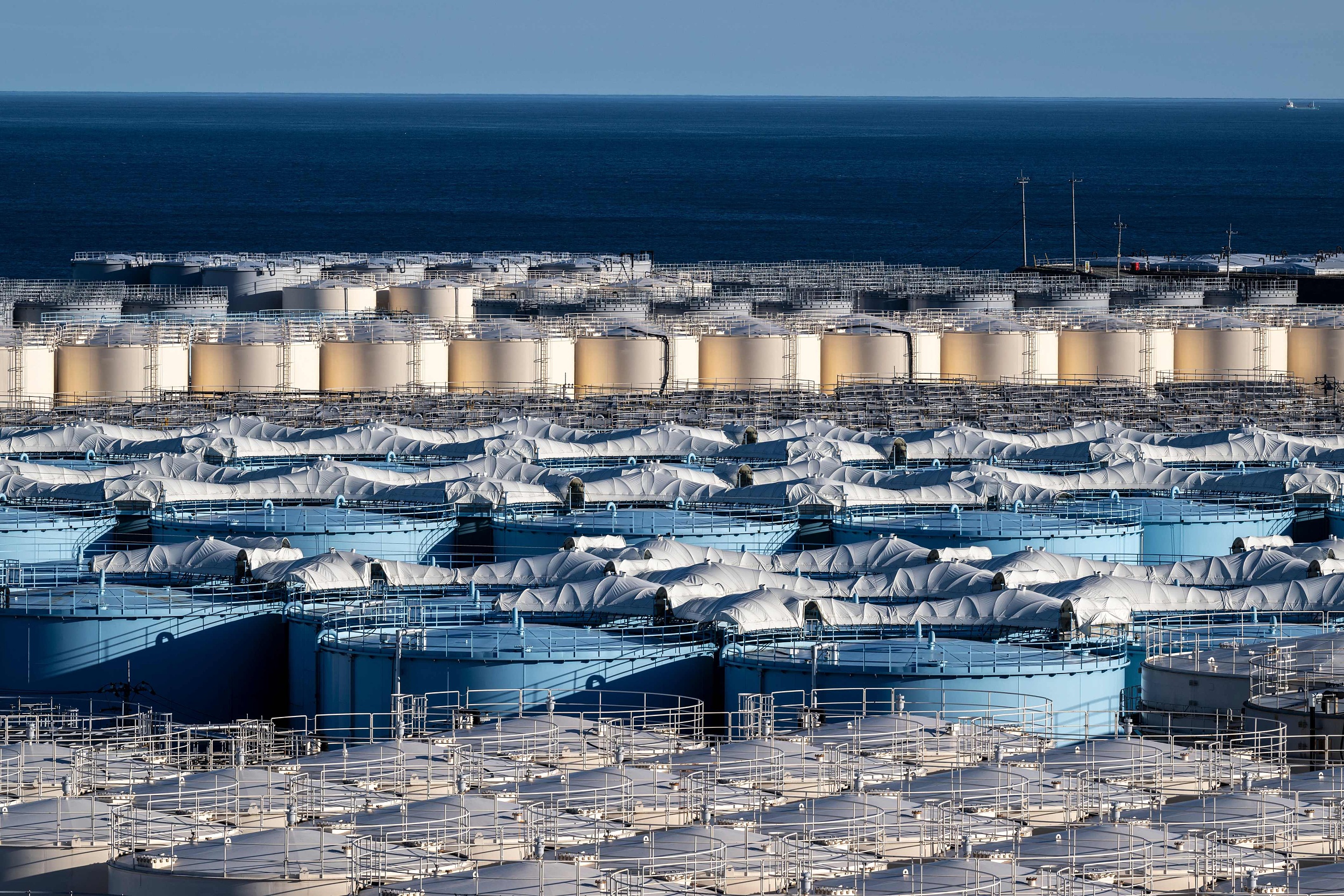Say No to Fukushima's Wastewater

A general view shows storage tanks for contaminated water at the Tokyo Electric Power Company's (TEPCO) Fukushima Daiichi nuclear power plant, in Okuma of Fukushima prefecture in January 20, 2023. (PHOTO: VCG)
By QI Liming
Japan unilaterally decided to pour around 1.3 million tons of contaminated water from the destroyed Fukushima nuclear power plant into the sea: enough wastewater to fill around 500 Olympic-sized swimming pools. In addition, the contaminated groundwater in multiple locations in no-go zones near the plant and less independent cross-checks on the water samples are equally worrying.
If highly radioactive water escaped and dispersed into the sea, it could become impossible to trace, a concern not only for Japan but also for countries in the Pacific, University of Tokyo Radiologist Katsumi Shozugawa said, adding that, "There should be a continuous, science-based effort to show other countries that it's thoroughly handled, which I think is lacking the most."
Cross-checks are another concern. The Tokyo Electric Power Company says water samples are shared with the International Atomic Energy Agency and the government-funded Japan Atomic Energy Agency, but experts would like to see independent cross-checks.
Meanwhile, scientists said health impacts from consuming tritium and other radioisotopes through the food chain may be worse than from drinking it in water, and thus further studies are needed.
Shozugawa said his analysis of groundwater in multiple locations in no-go zones near the plant has shown that tritium and other radioactive elements have been leaking into groundwater.
The Manila Times said on March 23 that the unilateral plan of the Japanese government to discharge the Fukushima wastewater into the Pacific is akin to a disregard for Japan's adherence and compliance with international law on the protection of the environment, which is a set of principles that aims to curb pollution and depletion of natural resources.
Embodied in the basic principles of International Environmental Law is the idea that we are one ecosystem, that we are interconnected, and that the polluter must pay. Hence, all countries, including Japan, must comply with and respect these basic principles of International Environmental Law.
Environmental groups, including Friends of the Earth, oppose the release. They have proposed long-term storage of the water by solidification, as used at the Savannah River waste repository in the U.S.
Attention should be paid to the words published on Pasifika Environews website, a geojournalism website managed by the Pacific Islands News Association: "The world's dumping ground for nuclear waste doesn't want Fukushima's wastewater!"


